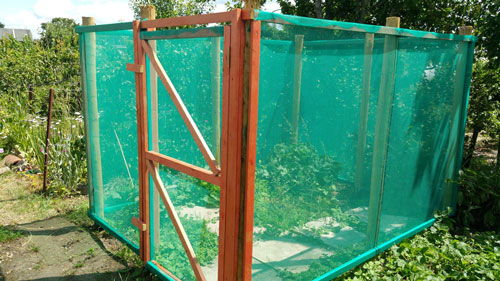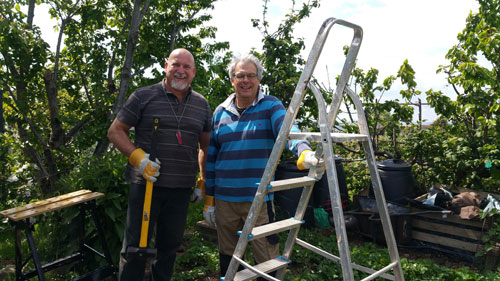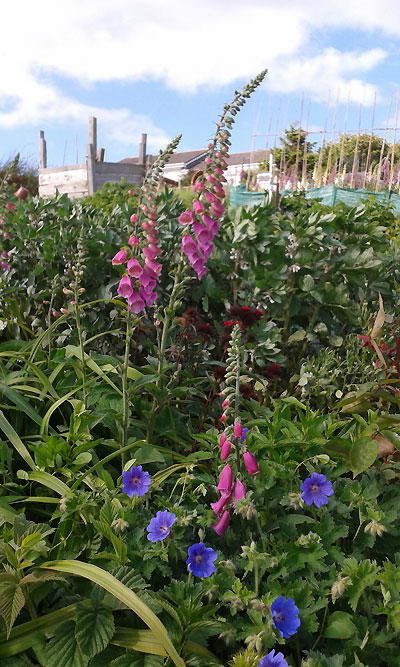Please note that you must apply to EDAA before keeping bees or if you wish to change stock levels.
EDAA recognises how valuable and important all pollinators are to our plants, produce and the wider environment. Bees in particular are incredible creatures and we would encourage plot holders to consider keeping bees. But before you even think about it read on ...
You may wish to
EDAA will give a plot holder permission to keep bees only if they meet certain criteria and show an understanding of the good practice needed to enable the bees to thrive and in turn benefit both the local and wider communities.


Advice and criteria:
In our experience, most people welcome responsible beekeepers but occasionally you find people who are severely allergic to stings and it would not be reasonable to put them at increased risk of harm. So, check with all close neighbours that they are happy for you to keep bees.
We welcome beekeepers of all levels but would expect you to take responsibility for your livestock. This would mean establishing the support you need depending on your skills.
We expect everyone to have attended a basic beekeeping course with a beekeeping association. New beekeepers must also be able to access advice and support from an experienced mentor.
You will need to be a member of a local bee keeping association and have BDI receipt to cover losses and claims against you should your bees cause harm to others.
Even most the most experienced beekeepers are occasionally outwitted by bees and having the facility to manage colony expansion and swarming at peak season is crucial. You will need to demonstrate that you have either room to expand or that you can increase your hive capacity. Being ready and able to do this will prevent the loss of bees and bothering the locality with swarms.
The queen sets the temperament of the colony. A placid queen means a placid colony – easy to work with and less aggressive to neighbours if disturbed so, we would encourage you source to your colonies carefully and promote the use of placid colonies. Bees are clean creatures and don’t like dogs near their hive. They don’t like strimmer’s or other vibrations.
When returning to the hive bees always have a flight path. This is sometimes a nuisance for the bees working around the hive and others (humans) too. Providing them with a bee tunnel will help them access their hive by flying up and over a barrier. Careful siting of the hive and using other barriers also helps to reduce or eliminate this problem.
Bees need ready access to a topped-up water supply - so identify a source on your plot please. Otherwise they will look farther afield and could find someone else has a better one (much to their annoyance) and even use the shared water tanks.
In a good season bees can produce many lbs of honey but as EDAA rules state you cannot produce honey for profit or/and run it as a business. Honey for sale is a food stuff and covered by extensive regulation which you can find out about through the links on the British Beekeepers Association website.
Your bees are an addition to your allotment and a minimum of 40% cultivation will still be required. This will limit the extent of your beekeeping, but if you continue to responsibly care for your bees winter and summer you might befriend other plot holders who will host a hive.
Bees can get very hungry in winter and even summer with the ‘June drop’ so, you must be on hand to top up feed if they are struggling. Cover for more than a 2-week absence in peak season is recommended - someone on site may help out if you befriend them.
Bees have many enemies and we would expect you to manage your bees and inspect them regularly. If you have concerns about them having a notifiable disease, which could spread to other colonies and infect and kill other beekeeper’s bees, we would want you to report them. Then under guidance of your local bee inspector comply with all guidance which, unfortunately, may include the destruction of the colony(s). These diseases are American Foulbrood and European Foulbrood both of which are covered by EU legislation.
Regional bee inspector
Simon Jones
email
Tel No: 01823 442228
Mobile No: 07775 119459
If you still want to keep bees and there are problems, talk to the committee members - we may be able to help you.
Useful links
The National Bee Unit – this has much help support, advice through many regularly updated factsheets
http://www.nationalbeeunit.com
British Beekeepers Association
https://www.bbka.org.uk
Exeter Beekeepers Association - affiliated to Devon Beekeepers Association and offers Bee keeping courses
http://www.exeterbeekeepers.org.uk
East Devon Beekeepers Association affiliated to Devon Beekeepers Association and offers Bee keeping courses
http://www.eastdevonbk.co.uk
The National Allotment Society - link to their page on keeping bees on allotments
https://www.nsalg.org.uk/allotment-info/hens-bees-and-other-animals-allotment-beekeeping/
Link to leaflet on beekeeping on allotments
https://www.nsalg.org.uk/wp-content/uploads/2012/09/A5_Honey-Bees_220213_HiRes.pdf

